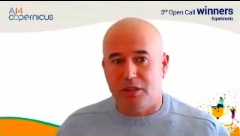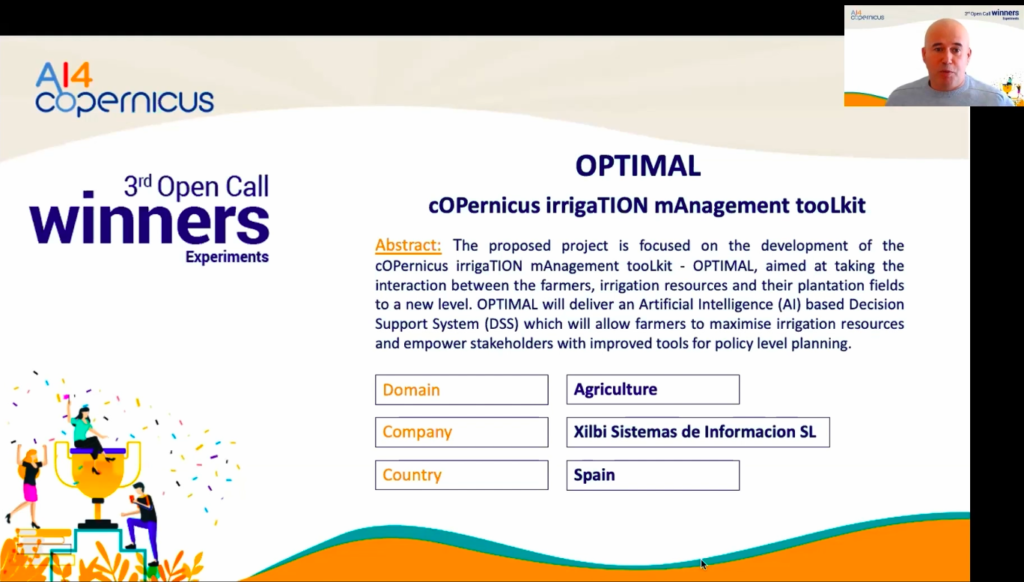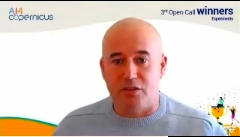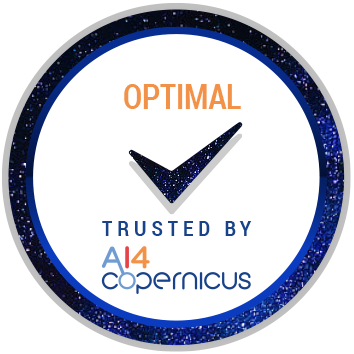OPTIMAL – cOPernicus irrigaTION mAnagement tooLkit
Winning project from the 3rd Open Call funded by the AI4Copernicus Project
Company: Xilbi Sistemas de Informacion
Country: Spain | Domain: Agriculture
An interview with the winners – Pedro Branco, representing the OPTIMAL project

Q: What was your motivation for creating this proposal?
A: The main driver behind creating this proposal was the growing importance of optimising water resources during farming irrigation procedures. Copernicus offers valuable data and innovative AI algorithms allow to obtain valuable intelligence towards the irrigation procedures optimisation.
Q: Which is the most critical impact (societal or other) that your project could make (if you could name one)?
A: The most critical impact is the capability to use irrigation resources in an environmental sustainable way and without compromising the agricultural production, particularly within intensive and ultra-intensive crops (e.g.: almonds).
Q: Considering the recent funding received through the AI4Copernicus Open Calls, do you have any plans for further development of your idea?
A: The OPTIMAL project aims at developing the prototype up to TRL 6 – technology demonstrated in relevant environment. We intend to continue to further develop the prototype, up to TRL 9 – actual system proven in operational environment, and to integrate it in our commercial line of products and services.


A few words about the project: The proposed project is focused on the development of the cOPernicus irrigaTION mAnagement tooLkit – OPTIMAL, aimed at taking the interaction between the farmers, irrigation resources and their plantation fields to a new level. OPTIMAL will deliver an Artificial Intelligence (AI) based Decision Support System (DSS) which will allow farmers to maximise irrigation resources and empower stakeholders with improved tools for policy level planning. The OPTIMAL development will be initially focused in the intensive almonds production – a product with high demand and commercial growth, whose production strongly depends on irrigation and will be progressively generalised towards aiming at other types of crops. OPTIMAL will provide better, more streamlined and optimised irrigation management; protect the environment; maximise existing investments; reduce operation and management costs; reduce losses and improve profitability.


